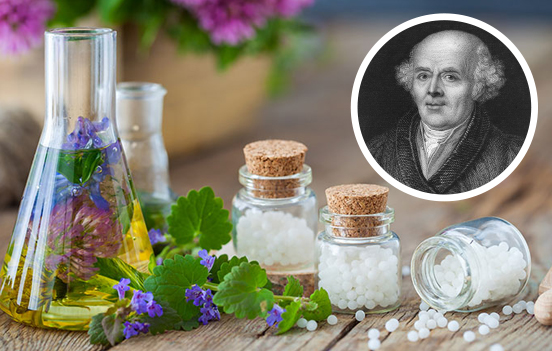Home History of Homeopathy: Through the Ages
May 06, 2024
History of Homeopathy: Through the Ages
Table of Contents
- Introduction to Homeopathy
- Origins and Foundational Concepts
- Early Adoption and Spread
- The Golden Age of Homeopathy
- Challenges and Decline
- The Homeopathy Renaissance
- Homeopathy Today
- Controversies and Criticism
- Future Prospects
- FAQs
Introduction to Homeopathy:
Homeopathy is one of the most intriguing systems of holistic medicine, with a rich and thought-provoking history of over two centuries; it might be connected to a legendary doctor who lived so many centuries ago. As one of the best homeopathic doctors in Dubai, I have always got attracted towards the origin of this art. This article chronicles, byway of the historical key, and day luminaries that helped shape homeopathy into the globally recognized practice it enjoys today.Origins and Foundational Concepts:
At the turn of the 18th century, homeopathy was founded by the German physician Samuel Hahnemann. Disillusioned by much ineffectiveness and roughness characterizing medical practice at his time, Hahnemann simply decided to delve into the research and development of a gentler, natural way for health. Most of the fundamental principles of homeopathy, involving the law of similars—a substance can cure similar symptoms of the disease patient, of which it could produce on an individual, although provided in a highly diluted dose—were developed by him.
Early Adoption and Spread:
The 19th-century early period witnessed homeopathy spreading rapidly all over Europe. This gentle form, with individually prescribed medicines and great success rates, was such that patients and practitioners had to grow. Meanwhile, in 1835, the first homeopathic medical school in the U.S. was founded, so there was also growth in North America.The Golden Age of Homeopathy:
By the middle of the 19th century, homeopathic institutions, hospitals, and societies had started flourishing in different countries of the world. The brightest representatives of this flow and a big input into development and popularization of homeopathic knowledge were people like Constantine Hering, James Tyler Kent, and John Franklin Gray. In that period, homeopathy became a respectful kind of medicine, highly demanded.Challenges and Decline:
However, there arose the rise of biomedicine and pharmaceutical intervention from the beginning of the 20th century, which posed great challenges to homeopathy. It experienced an institutional desertion, characterized by regulatory pressures and skepticism by conventional medical professionals, thus making homeopathy rare in usage. Many homeopathic schools and hospitals closed, and the practice faced a period of relative obscurity.The Homeopathy Renaissance:
Homeopathy, during the late 20th century, went through an amazing comeback for attention, especially due to holistic and alternative medicine. Some of the best homeopathy doctors practicing in the UAE and from around the globe have contributed majorly toward the revival and advancement of practice, finding that right balance in integrating homeopathic principles with today’s modern medical knowledge and technology.Homeopathy Today:
Today, homeopathy is being practiced in more than 80 countries, and highly appreciated by people who tend to receive answers regarding their health, which are solely natural and complementary. Continuous improvement of information technologies, along with the invention of the internet and social media, makes it possible to develop and apply homeopathic knowledge, to connect between practitioners and patients, in ways that never existed before. However, debate and criticism have always surrounded homeopathy, especially from the skeptical community in respect to its scientific rationality and effectiveness.Future Prospects:
Continuous research and potential innovative areas in this field might unfold further understanding of the mechanism of homeopathic remedies, thereby optimizing treatment results. This amalgamation of the best from all streams provides a general approach towards healthcare that includes all patients. The journey of homeopathy through the ages only goes to show how this treatment has stood the test of time, with practitioners always dedicated to it. Understanding the roots and development of homeopathy is having light shed on something even more appreciable: how did it make its way into modern integrative medicine and its potentials to change the lives of many patients who are seeking gentle and holistically fine care? To learn more about homeopathic treatment connect with Dr. Rajichandran R., the best homeopathy doctor in Dubai. Address: Medstar Speciality Hospital, Ground Floor, Gulf Towers, Oud Metha Road – Dubai Website: https://medstarhc.com/doctors/dr-rajichandran-r/ Book an appointment: +971566090263 Chat on WhatsApp: wa.me/971566090263FAQs:
- How did homeopathy’s principles challenge the conventional medicine of its time?
- What led to the “Golden Age” of homeopathy, and why did it decline?
- How has the perception of homeopathy changed in the medical community over the years?
- What role do regulatory bodies play in the practice of homeopathy today?
- How is modern technology influencing the practice and spread of homeopathy?


